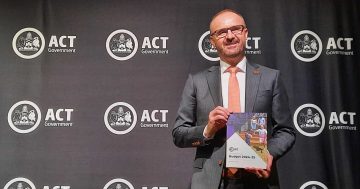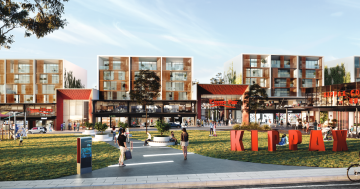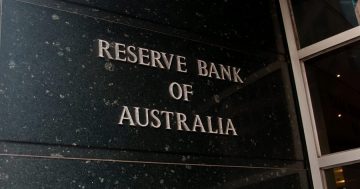
ACT executive director of the Property Council of Australia Adina Cirson: “We need tax settings which drive growth.” Photo: File.
The ACT’s property industry is pushing for the next government to set up a new panel to advise it on the contentious issue of rates and tax reform, and aim for a growth strategy.
It does not single out Labor by name but its arguments echo that of Canberra Liberals leader Alistair Coe who has been charging that the Barr Government’s tax settings and reform program were sending people across the border in search of a cheaper houses and lifestyle, and that the ACT needed to boost its population to grow its revenue base.
The industry has also been a vehement critic of the Barr Government’s Lease Variation Charge regime designed to capture the increased value of land for the community when there is a change of use.
ACT executive director of the Property Council of Australia Adina Cirson said when costs borne by property owners became unsustainable, it stifled business confidence and investment.
”Being a small jurisdiction with a limited industrial base, the ACT relies more heavily than most on land and property-related taxes. This is a difficult reality for the ACT, but this situation has a number of consequences for the development sector and housing affordability,” she said.
“It means less than affordable housing, especially in inner urban areas, and a long-term structural drift to a narrower tax base as more housing and industry moves over the border but still relies on the ACT’s essential services such as hospitals and schools.”
Ms Cirson said such as a panel – made up of community, business, industry and housing providers and government officials – would ensure the Territory had a tax system that encouraged investment and business but remained affordable for homeowners and renters alike.
She said that during the COVID-19 recovery the ACT needed a targeted and strategic plan to grow its population and draw people to live and work in Canberra, and how to best use that growth to grow the Territory’s revenue base sustainably.
“Rates and charges and how election promises are to be funded has become a clear focus of the campaign and policy differences between the parties in recent days,” she said.
”Never has there been a more critical time for us to consider how desperately needed stimulus measures and infrastructure spending are to be funded, without costing Canberrans their homes and businesses.”
But Ms Cirson said that missing from the election discussion was how this could be done strategically and what the “right rate” of rates and charges would be to keep the ACT competitive and enable government to invest to create jobs and diversify the economy.
“We just can’t afford to ‘set and forget’ rates increases or rates freezes for that matter. We need to be constantly adjusting the settings as we move from recovery to growth through these times. That means we need tax settings which drive growth,” she said.
”We all need to pull together to make sure our economy remains agile, that we have the settings right as conditions change, and we can sustainably and affordably grow the revenue base to make sure that the next government can afford to fund its promises, but not in a way that disproportionately impacts on one part of the community.”
The Property Council suggests that its Rates and Tax Reform Advisory Panel consist of the Treasurer and Under Treasurer; the heads of the Chief Minister, Treasury and Economic Development Directorate and Community Services Directorate; representatives from ACT Council of Social Services, Northside or Woden Community Services and ACT Shelter; the Canberra Business Council; the Property Council of Australia, ACT Division; and Master Builders ACT.
All members would disclose any conflicts of interest and not take part in discussions relating to the matter.





















